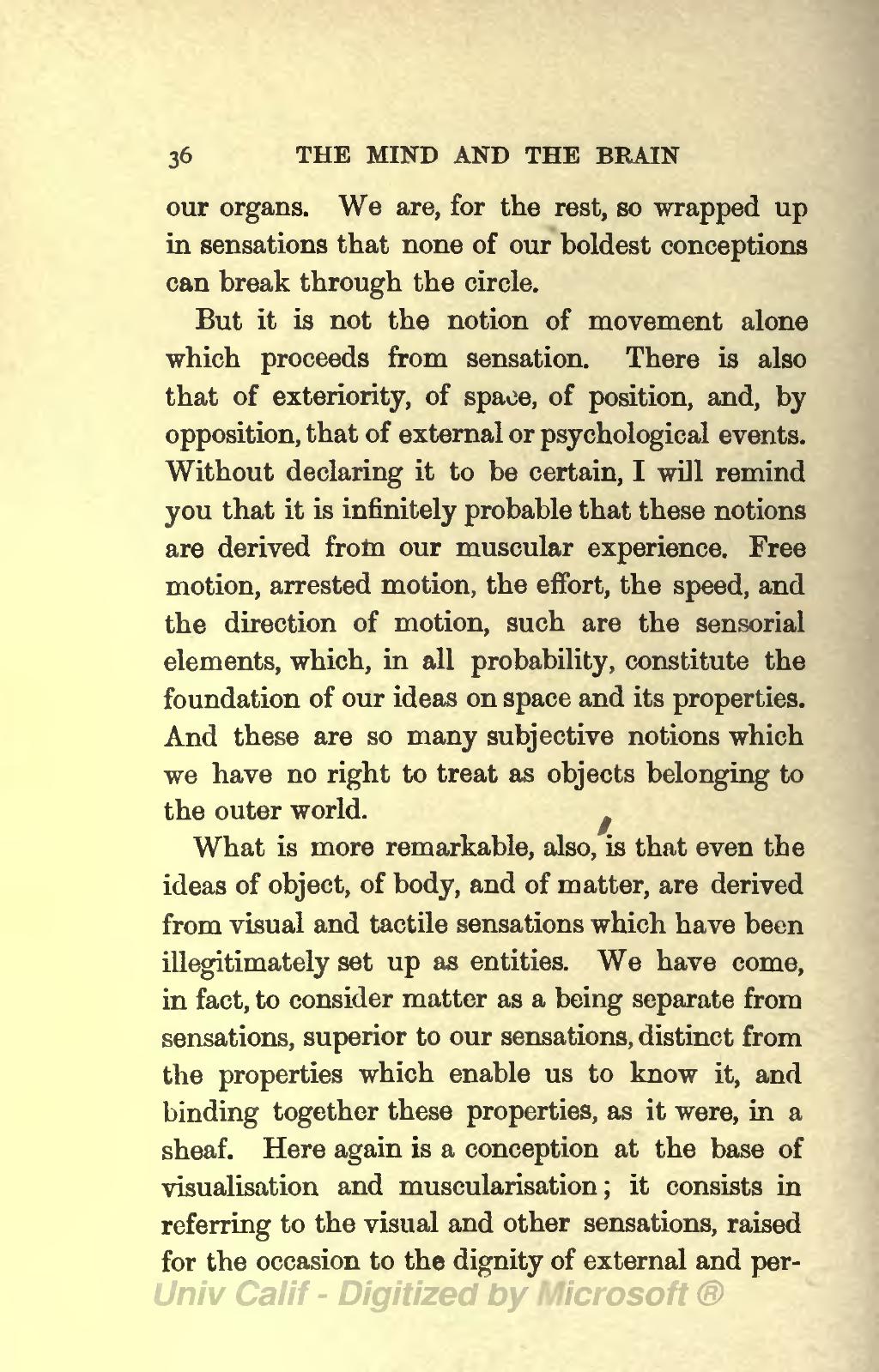our organs. We are, for the rest, so wrapped up in sensations that none of our boldest conceptions can break through the circle.
But it is not the notion of movement alone which proceeds from sensation. There is also that of exteriority, of space, of position, and, by opposition, that of external or psychological events. Without declaring it to be certain, I will remind you that it is infinitely probable that these notions are derived from our muscular experience. Free motion, arrested motion, the effort, the speed, and the direction of motion, such are the sensorial elements, which, in all probability, constitute the foundation of our ideas on space and its properties. And these are so many subjective notions which we have no right to treat as objects belonging to the outer world.
What is more remarkable, also, is that even the ideas of object, of body, and of matter, are derived from visual and tactile sensations which have been illegitimately set up as entities. We have come, in fact, to consider matter as a being separate from sensations, superior to our sensations, distinct from the properties which enable us to know it, and binding together these properties, as it were, in a sheaf. Here again is a conception at the base of visualisation and muscularisation; it consists in referring to the visual and other sensations, raised for the occasion to the dignity of external and per-
